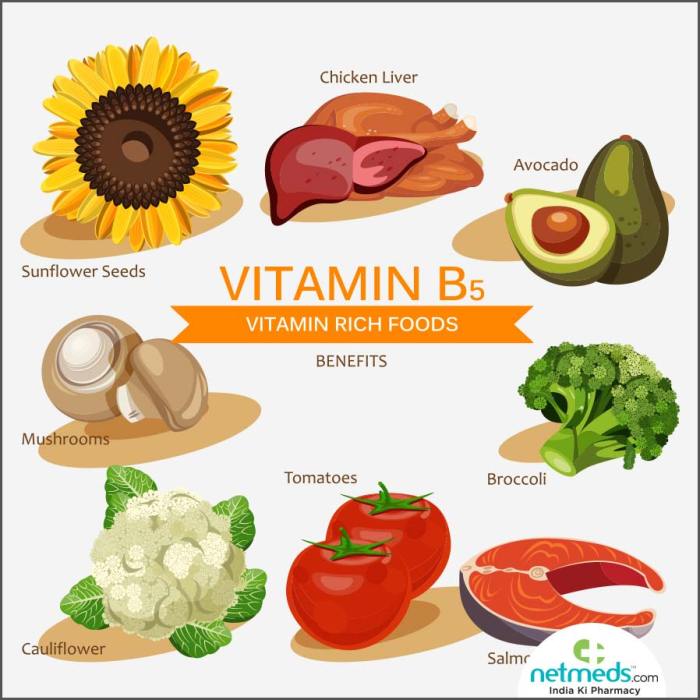B vitamin source crossword clue – Embark on a culinary adventure with our comprehensive guide to B vitamin sources. From energy-boosting foods to nerve-nourishing delights, discover the secrets behind these essential nutrients and their vital role in your well-being.
B vitamins, a group of water-soluble vitamins, play a crucial role in energy production, metabolism, and nerve function. Understanding their diverse sources is key to maintaining optimal health.
Sources of B Vitamins

B vitamins are a group of water-soluble vitamins that play crucial roles in various bodily functions, including energy production, nerve function, and red blood cell formation. They are not naturally stored in the body, so it is essential to consume them regularly through dietary sources.
If you’re stumped on a crossword clue for a b vitamin source, you might want to check out the sports of the elizabethan era . Believe it or not, some of these pastimes, like archery and tennis, are still popular today.
And who knows, you might even find a b vitamin-rich snack to enjoy while you’re learning about these historical games.
Here is a comprehensive list of food sources rich in B vitamins:
Meat, Fish, and Poultry
- Beef liver:Excellent source of B12, B2, B3, B5, B6, and B9.
- Chicken breast:Good source of B3, B6, and B12.
- Salmon:Rich in B12, B3, B6, and B9.
- Tuna:Good source of B12, B3, and B6.
Dairy Products
- Milk:Good source of B2, B3, B5, and B12.
- Yogurt:Good source of B2, B5, and B12.
- Cheese:Good source of B2, B5, and B12.
Eggs
- Whole eggs:Excellent source of B2, B5, B6, B9, and B12.
Whole Grains
- Brown rice:Good source of B1, B3, B5, and B6.
- Quinoa:Good source of B1, B2, B3, B5, B6, and B9.
- Oatmeal:Good source of B1, B3, B5, and B6.
Legumes, B vitamin source crossword clue
- Beans (kidney, pinto, black):Good source of B1, B3, B5, and B6.
- Lentils:Good source of B1, B2, B3, B5, B6, and B9.
Nuts and Seeds
- Almonds:Good source of B2, B3, and B5.
- Sunflower seeds:Good source of B1, B3, B5, and B6.
- Chia seeds:Good source of B1, B2, and B3.
Fruits and Vegetables
- Bananas:Good source of B6 and B9.
- Avocados:Good source of B5, B6, and B9.
- Spinach:Good source of B2, B6, and B9.
Health Benefits of B Vitamins

B vitamins play a crucial role in maintaining overall health and well-being. They are involved in various bodily functions, including energy production, metabolism, and nerve function.
The health benefits of B vitamins include:
- Energy production:B vitamins, especially B1 (thiamine), B2 (riboflavin), and B3 (niacin), are essential for energy production. They help convert food into energy, providing the body with the fuel it needs to function.
- Metabolism:B vitamins, such as B6 (pyridoxine) and B12 (cobalamin), are involved in the metabolism of carbohydrates, proteins, and fats. They help the body break down and use nutrients efficiently.
- Nerve function:B vitamins, particularly B12 and B9 (folic acid), are crucial for the proper functioning of the nervous system. They help maintain healthy nerve cells and support cognitive function.
- Other benefits:B vitamins have also been linked to improved mood, reduced risk of heart disease, and healthier skin and hair.
Deficiency Symptoms

Vitamin B deficiency can manifest in a range of symptoms, depending on the specific vitamin that is lacking. Some common signs and symptoms include fatigue, weakness, irritability, difficulty concentrating, and muscle cramps.
Specific Health Issues
Prolonged B vitamin deficiency can lead to more severe health issues. For example, a deficiency of vitamin B12 can cause anemia, nerve damage, and impaired cognitive function. Vitamin B9 deficiency can lead to anemia and birth defects in pregnant women.
Vitamin B6 deficiency can cause skin rashes, anemia, and nerve damage.
Recommended Daily Intake: B Vitamin Source Crossword Clue

The recommended daily intake (RDI) of B vitamins varies depending on age, sex, and overall health. Meeting these recommendations is essential for optimal health, as B vitamins play crucial roles in energy production, nerve function, and cell growth.
The following table summarizes the RDI of B vitamins for different age groups:
| Vitamin | Children (4-8 years) | Children (9-13 years) | Teens (14-18 years) | Adults (19-50 years) | Adults (51+ years) |
|---|---|---|---|---|---|
| Thiamin (B1) | 0.6 mg | 0.9 mg | 1.2 mg | 1.2 mg | 1.2 mg |
| Riboflavin (B2) | 0.8 mg | 1.1 mg | 1.3 mg | 1.3 mg | 1.3 mg |
| Niacin (B3) | 8 mg | 12 mg | 16 mg | 16 mg | 16 mg |
| Pantothenic Acid (B5) | 3 mg | 4 mg | 5 mg | 5 mg | 5 mg |
| Vitamin B6 | 0.5 mg | 0.8 mg | 1.0 mg | 1.3 mg | 1.7 mg |
| Biotin | 10 mcg | 20 mcg | 30 mcg | 30 mcg | 30 mcg |
| Vitamin B9 (Folate) | 150 mcg | 200 mcg | 300 mcg | 400 mcg | 400 mcg |
| Vitamin B12 | 0.9 mcg | 1.2 mcg | 1.8 mcg | 2.4 mcg | 2.4 mcg |
Supplementation

B vitamin supplements can be beneficial for individuals with certain dietary restrictions or who have difficulty absorbing vitamins from food sources. They may also be necessary for people who are pregnant, breastfeeding, or have certain medical conditions that increase their vitamin B requirements.
Supplements come in various forms, including tablets, capsules, and liquids. When choosing a supplement, it is important to select a high-quality product from a reputable manufacturer. Look for supplements that are third-party tested and certified to ensure their safety and efficacy.
Potential Risks of Supplementation
- Excessive intake of B vitamins, especially vitamin B6, can lead to nerve damage and other health problems.
- Some B vitamins, such as vitamin B12, can interact with certain medications, so it is important to consult a healthcare professional before taking supplements.
- Supplements may not be necessary for individuals who have a balanced diet and can obtain sufficient vitamins from food sources.
Essential FAQs
What are the most common B vitamins?
The eight B vitamins include thiamin (B1), riboflavin (B2), niacin (B3), pantothenic acid (B5), pyridoxine (B6), biotin (B7), folate (B9), and cobalamin (B12).
Which foods are particularly rich in B vitamins?
Excellent sources of B vitamins include meat, poultry, fish, eggs, dairy products, legumes, nuts, seeds, and whole grains.
Can I get enough B vitamins from my diet alone?
While a balanced diet can provide most of the B vitamins you need, certain individuals, such as vegans, pregnant women, and those with certain medical conditions, may benefit from supplementation.